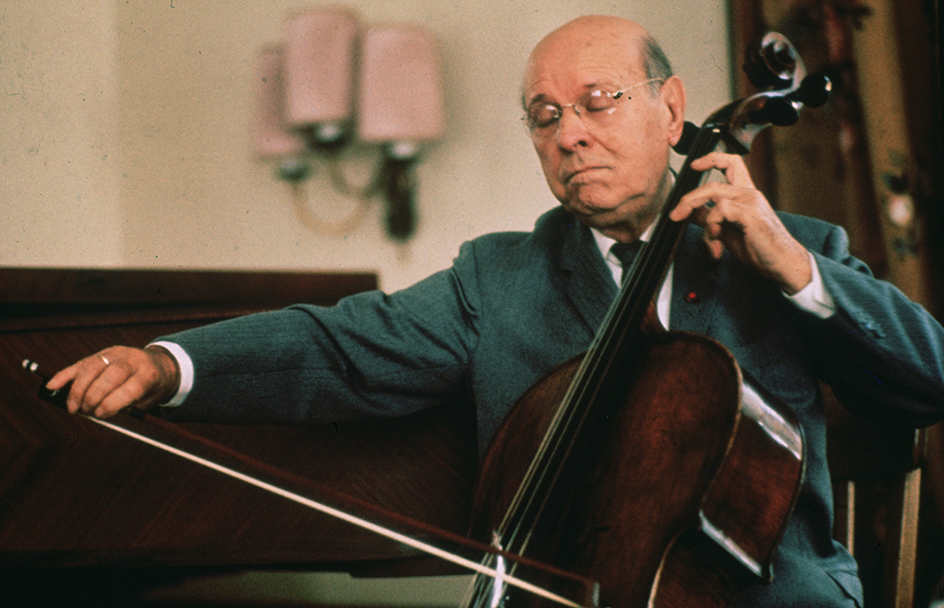Casals, Pablo, << kah SAHLS, PAH bloh >> (1876-1973), a Spanish cellist, was one of the greatest musicians of his time. He was also a conductor, composer, and teacher. Casals modernized cello technique, broadened the range of music that cellos could play, and established the cello firmly as a concert instrument.

Casals was born on Dec. 29, 1876, in Vendrell, Spain. He made his debut as a cellist in Paris in 1898. In 1919, Casals founded the Orquestra Pau Casals in Barcelona and directed it until 1936, when the Spanish Civil War broke out. Casals was outraged by the overthrow of the Spanish republic by Francisco Franco. In protest, he went into exile in Prades, France, in 1939. Beginning with World War II (1939-1945), Casals spent much of his time helping Spanish refugees.
In 1950, Casals established a music festival in Prades. In 1956, he moved to Puerto Rico, his mother’s birthplace. He relocated his festival there and continued as its director. Casals remained active in music until the end of his long life. But he believed he was most important as a champion of freedom and peace for Spain and all humanity.
Casals wrote a memoir, Joys and Sorrows (1970). He died on Oct. 23, 1973.
